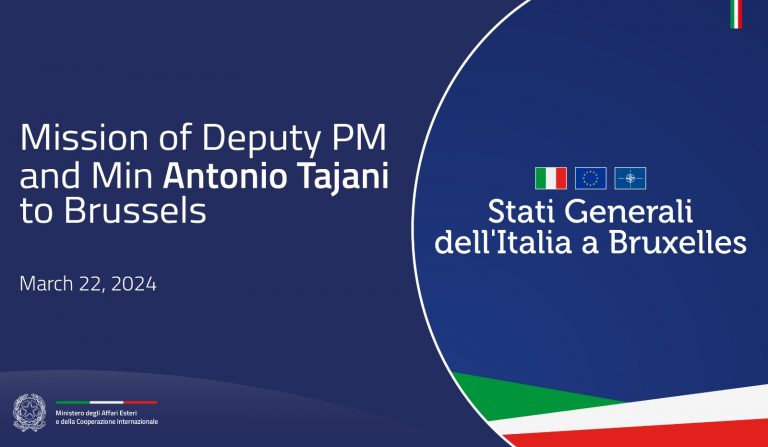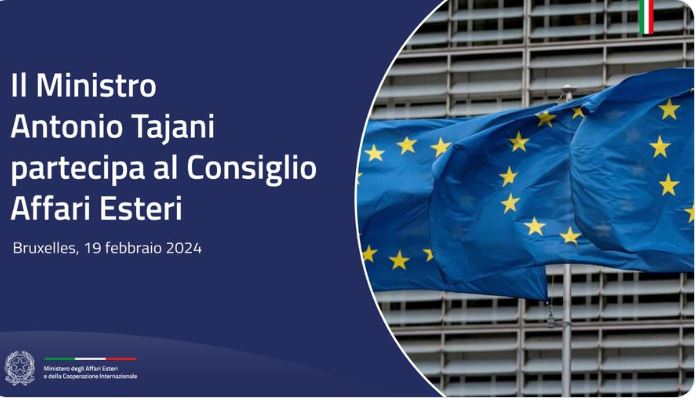Unwavering support for Serbia’s membership in the European Union, a stronger role for Brussels in institution building in Bosnia-Herzegovina, resumption of dialogue with Slovenia and Croatia regarding reparations to exiles, and Italian consulates in Koper and Split to remain open. Minister for Foreign Affairs Giulio Terzi di Sant’Agata lays out his crowded agenda, highlighting the Balkans’ geopolitical and economic importance for our country.
Serbia’s entry into the EU is quite complicated, what is Italy’s position?
«I am confident that the question can be resolved at the European Council of March 1st and 2nd by granting Serbia candidate country status. I have been very active on this front since November, when the difficulty of two or three countries to resolve the question before the end of 2011 arose, because Italy is unconditionally in favour of Serbia’s integration».
For what reasons?
«Because this country is an model of compliance with European conditions, the latest being its fulfilment of the pledge to turn over wanted Serbian criminals; and because it has been active, especially toward the year’s end, in dialogue with Kosovo, and the achievement of specific agreements on matters concerning the living conditions of the people of Kosovo».
There have, however, been clashes in the north of Kosovo…
«Unfortunate and deplorable incidents that resulted in numerous wounded among the KFOR forces that intervened to keep the peace, and this regrettably disrupted the negotiations in Brussels during the last Foreign and European Affairs Council».
How can the impasse be overcome?
«The incident must now be examined in context, and viewed along with the political merits and advantages for everyone of Serbia’s rapid rapprochement with Europe».
A few days ago, though, when asked whether Serbia would ever recognise Kosovo, President Boris Tadic’s response was «never». That doesn’t help.
«It doesn’t help, but we cannot impose further conditions on candidate country status. We were among the very first countries to recognise the independence of Kosovo and we intend to foster its rapid incorporation into Community and EU institutions, but it would not be appropriate to view Serbia’s stance on Kosovo as a further condition for its entry into the EU; indeed, there are various European countries that have not yet recognised Kosovo. And then it is in Europe’s interests to cultivate the support of the Serbian public, as additional obstacles could instead result in cultivating the terrain needed to nurture forces that certainly would not represent an element of stability for Serbia, much less for Kosovo».
The Balkans’ “soft underbelly” is Bosnia. Should Dayton be rewritten?
«Dayton played a vital role in the stabilisation of what is now a multiethnic Bosnia that is having difficulty maintaining a balanced government; that is why we have taken part in efforts to strengthen the country’s constitutional platform, to make the country more governable. That is why its European integration is an important card to play and why we have supported a renewed role for Brussels with EU Special Envoy Sorensenn. That is the route to pursue ».
Do you have a message for a Croatia on the verge of joining the EU?
«A message of great friendship. Starting in July 2013 we will be working together in all Community institutions, but that country is already an important partner for us as regards both Balkans and Adriatic issues, as well as policies aimed at strengthening European institutions and the enlargement process. Croatia is a nation of strategic importance for the Balkans and, therefore, also for Italian foreign policy».
As for the property losses of exiles: a trust fund was opened by Slovenia and Croatia at the Dresdner Bank in Luxembourg for the payment of the 110 million-dollar indemnity established by the 1983 Rome Accord. Ljubljana has already paid its portion, Zagreb has not. What will Italy do with those funds?
«We intend to re-establish diplomatic contact with Slovenia and Croatia in order to rapidly reach a solution acceptable to all the parties concerned, first and foremost with the associations of exiles who are very dear to us for what they represent to our culture and for the sacrifices that have had to endure all these years. A debt to them was acknowledged in 1983 and we intend to pursue negotiations on the residual $57.7 million owed by Slovenia and $35.3 million by Croatia».
In 2007 then-foreign minister Massimo d’Alema stated at Ljubljana that the $110 million sum agreed on with former Yugoslavia needed to be revised. What do you think?
«It’s an idea that can be discussed. The amount set in 1983 was truly the minimum that Italy would accept at the time, so if there is any margin for our consideration of a revised sum we would certainly entertain it with great interest».
Cuts to diplomacy: are the Italian consulates in Koper and Split going to be closed?
«No, there will be no closings or cuts, much less in Koper and Split, unless these matters are entirely re-examined on the basis of the in-depth State spending review the government is planning to carry out over the coming months. No decisions will be taken without careful assessment of the possibility of offsetting such cuts in such a way as to maintain efficiency. Nothing will happen for the moment ».
How much will the economic crisis affect American voters in the upcoming U.S. elections?
«The economy is a major player in the electoral campaign. There is a current sensation however, albeit on the basis of limited but significant data, that the Obama administration’s chances are improving, since unemployment has been declining over the past six months, business prospects are brightening and tax exemptions are being extended to the working classes; so opinion polls are giving Obama the edge. But the race is still very much on».





